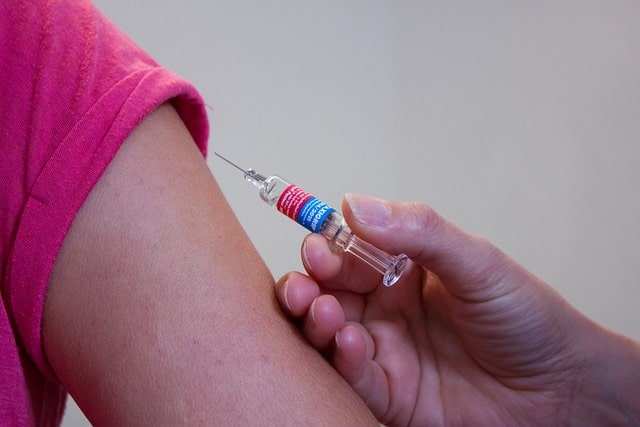

New Delhi – A capacity-building workshop aimed at equipping media professionals with the tools to counter vaccine hesitancy and encourage vaccine uptake concluded here, today.
The workshop, organized by UNICEF in partnership with the Ministry of Health and Family Welfare (MoHFW), was held ahead of India's upcoming launch of the vaccine catch-up campaign, the Intensified Mission Indradhanush (IMI) 5.0 in early August.
IMI 5.0 will focus on reaching zero-dose children aged between 0 to 5 years, ensuring that every child receives life-saving vaccines. The initiative is also intended to be the big leap for achieving Measles & Rubella elimination in the country by ensuring that every child under 5 years of age has completed the two-dose schedule of Measles and Rubella Containing Vaccine (MRCV).
Over 50 journalists from various states, including Delhi, Uttar Pradesh, Rajasthan, Maharashtra, West Bengal, Assam, Meghalaya, and Manipur, actively participated in the workshop.
Dr. Veena Dhawan, Additional Commissioner (Immunization), MoHFW, apprised the media about the IMI 5.0 campaign and India's resolve to eliminate measles and rubella by the end of this year. She said, “Media's pivotal role in IMI 5.0 cannot be understated. By effectively communicating the importance of vaccination,media professionals have the power to foster community engagement and significantly increase vaccine acceptance and coverage. Through raising awareness and countering myths, journalists can make a substantial contribution to the success of this life-saving initiative.”
The previous rounds of IMI 3.0 & IMI 4.0 have helped India in making significant strides in vaccination coverage in 2021 & 2022, as revealed by the latest WHO and UNICEF estimates of national immunization coverage (WUENIC) report. The country successfully reduced the number of zero-dose children from 2.7 million in 2021 to 1.1 million. This achievement not only places India among the countries with the highest vaccine confidence globally but also highlights the nation's unwavering commitment to Primary Health Care (PHC) as a robust entry point for immunization.
However, an equal number of children – 1.1 million – didn't receive any measles and rubella (MR) dose in 2022, indicating a delayed recovery in measles vaccine coverage. Measles can have severe complications, including pneumonia, brain damage, deafness, blindness, and sometimes, even fatalities.
Vaccine hesitancy, fuelled by unfounded myths and misconceptions surrounding vaccines, as well as concerns about Adverse Events Following Immunization (AEFI) – which may include mild side effects such as fever and swelling – presents a critical challenge in the ongoing battle against measles and rubella putting communities vulnerable to outbreaks.
Dr. N. K. Arora, Chief of the National Technical Advisory Group on Immunization (NTAGI) conducted a session on AEFI and the importance of countering vaccine hesitancy. He said, “Overcoming vaccine hesitancy is a shared responsibility, and media plays a vital role in building public trust, dispelling myths, and reinforcing the proven safety of vaccines. Our collective efforts in IMI 5.0 will pave the way for a resilient immunization program that protects our children, strengthens communities, and leads us towards a future free from preventable diseases.”
Measles is a highly contagious disease, and its resurgence often highlights the vulnerabilities in immunization coverage. Dr. Ashish Chauhan, Health Specialist, UNICEF, said, “Measles is a marker of the strength of the immunization system. When immunization coverage is low, measles is the fastest vaccine-preventable disease to return. IMI 5.0 takes a significant leap forward in strengthening equitable vaccine access and reaching underserved communities. By fortifying health systems and implementing targeted campaigns, we can eliminate measles and other vaccine-preventable diseases, creating a healthier and more resilient nation.”
Alka Gupta, Communication Specialist, UNICEF and Sonia Sarkar, Communication Officer (Media), UNICEF, facilitated the workshop and group works, fostering interactive discussions among the participating journalists.
Dr. MH Ghazali, Editor, Urdu News Network; Arun Nethani, Assistant Editor, Danik Tribune; Sanjay Abhigyan, former Executive Editor Amar Ujala; Abid Anwar, Deputy Head, UNI Urdu; and Alka Arya, Senior Columnist, lent their expertise to the group works, enriching the discourse on countering vaccine hesitancy and promoting immunization.
To enhance communication during the IMI 5.0 campaign, participating journalists will be connected through a dedicated WhatsApp group. This platform will allow them to access quick facts and information from the Ministry of Health and Family Welfare and UNICEF, enabling accurate and timely reporting on vaccination.
The capacity-building workshop highlighted the pivotal role of journalists in driving positive change, ensuring vaccine acceptance, and safeguarding public health.
